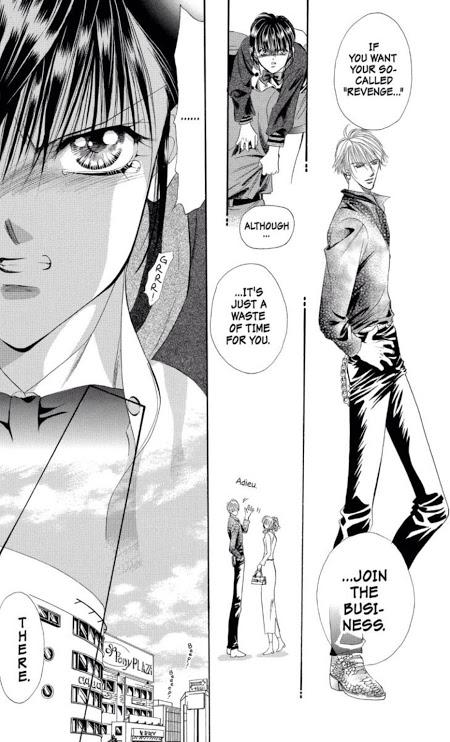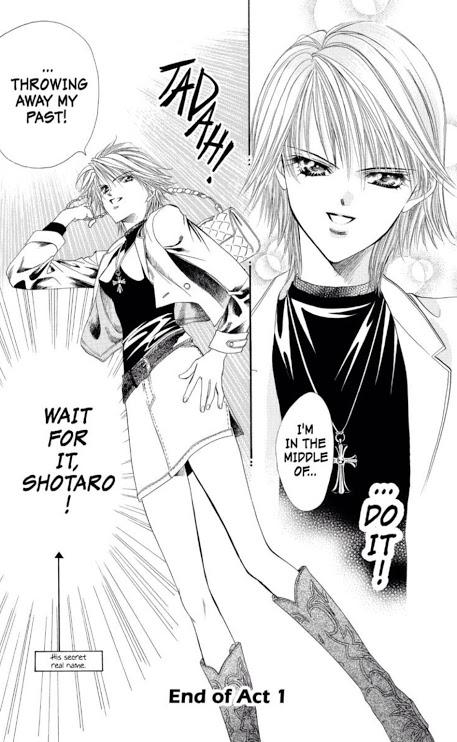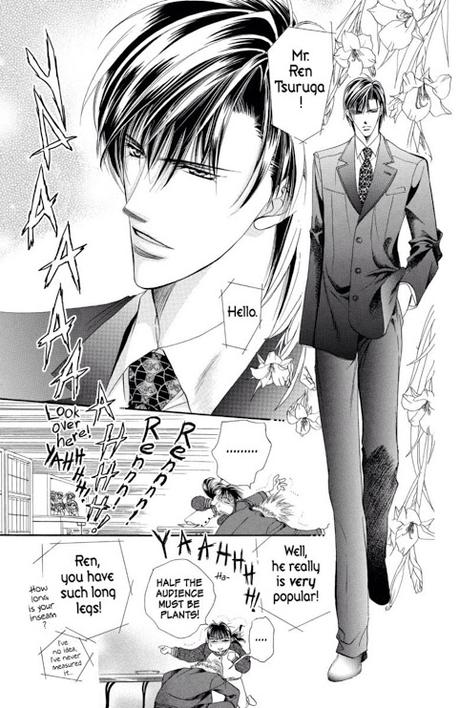Kyoko was the ideal girlfriend — patient, understanding, and ready to do anything and everything that it took to help her sweetheart Sho achieve his dream of becoming a famous singer. However, Sho only wanted her with him to be his maid. Kyoko isn’t the kind of girl to get sad, though; she gets even. She comes to the conclusion that the best revenge would be to beat Sho at his own game. and sets out to become a famous actress that will outshine him. However, if Kyoko wants to make that dream a reality, she will have to learn to let go of the negative impulses that drive her.
You may recognize Skip Beat from its anime version back in 2008, which was a pretty faithful adaptation with the exception of the very end. Spanning over twenty volumes, Skip Beat is in the same boat as Fruits Basket; well known to one generation of fans, but rarely discussed amongst another. However, when I do see Skip Beat brought up, I’ll notice that some people dismiss it out of hand because of some automatic assumptions they make about the premise. This is understandable—I do so myself with a lot of manga titles because there’s so much out there and so little time to read it all—but I’d like to address two of the biggest assumptions right off the bat:
1) This is not an idol series.
2) This is not a revenge series.

Despite how the initial premise makes it sound,
Skip Beat is more about Kyoko’s growth as a person and finding her true calling as an actress, not so much about rubbing her ex’s face in her success. At the beginning of the series, her entire being is defined by the people around her and their wants and needs. She does not think of herself at all, which leads to her being taken advantage of. There’s a difference between supporting the people you love and being a doormat, and Kyoko learns this the hard way. However, she does have a fiery side to her that is set off at the beginning of this series, and once that “Pandora’s Box” was opened, there was no turning back! And while she started to pursue acting for the wrong reasons, as the series goes on, Kyoko realizes that she genuinely loves acting and that it’s something that she wants to pursue and improve at for herself—not because she wants to “beat” her ex. It’s also important to mention that Kyoko’s path to stardom isn’t instantaneous. Early on in the series, she’s given a chance as the first member of the “Love Me” section, which requires her to wear a hideous pink jumpsuit and essentially act as a gofer before she can move on to better acting jobs. My favorite one of these is where she has to act as Bo, a giant chicken mascot for a variety show. The emphasis on Kyoko needing to work her way up the ladder and appreciate each job as an opportunity to learn is one of my favorite parts of the series, and something that I’d like to see more of in entertainment industry manga.

There’s a strong message here about doing what you love because it makes
you happy, and not because of anyone or anything else. I also adore the undercurrent of Kyoko finding self-love on her quest for stardom as well—it’s reiterated several times that she was so used to being called “plain” growing up that at first she can’t believe it when other people find her beautiful. The series is very strong on its themes of self-love and self-discovery, and there’s something about Kyoko that continues to make her relatable to me from back when I discovered the series in high school all the way up until now, in my mid-twenties.
It’s also fascinating to see the other characters learn from Kyoko as well—she comes from a very humble background with deep self-esteem problems, so her genuine excitement at certain situations helps to put things in context for other characters that have fallen too deep into their own ego. There is a romance subplot as well, but I don’t want to discuss it too much in this post because Skip Beat is one of those rare series where if the romance hints were completely removed, I feel that it would still be a fantastic manga just through its treatment of show business. At its core, this is a series about discovering what you love, and that it’s never too late to follow your passion and even inspire those around you to challenge themselves a little bit more when it comes to achieving their dreams.
 Missed it?
Missed it? The series is available through Viz Media in
print and
digital format. Earlier volumes have been reprinted in their 3-in-1 editions, which provide a great way to catch up since this is a very long series. Don’t let the length put you off the series though; every volume is an example of what makes the shoujo genre great!




